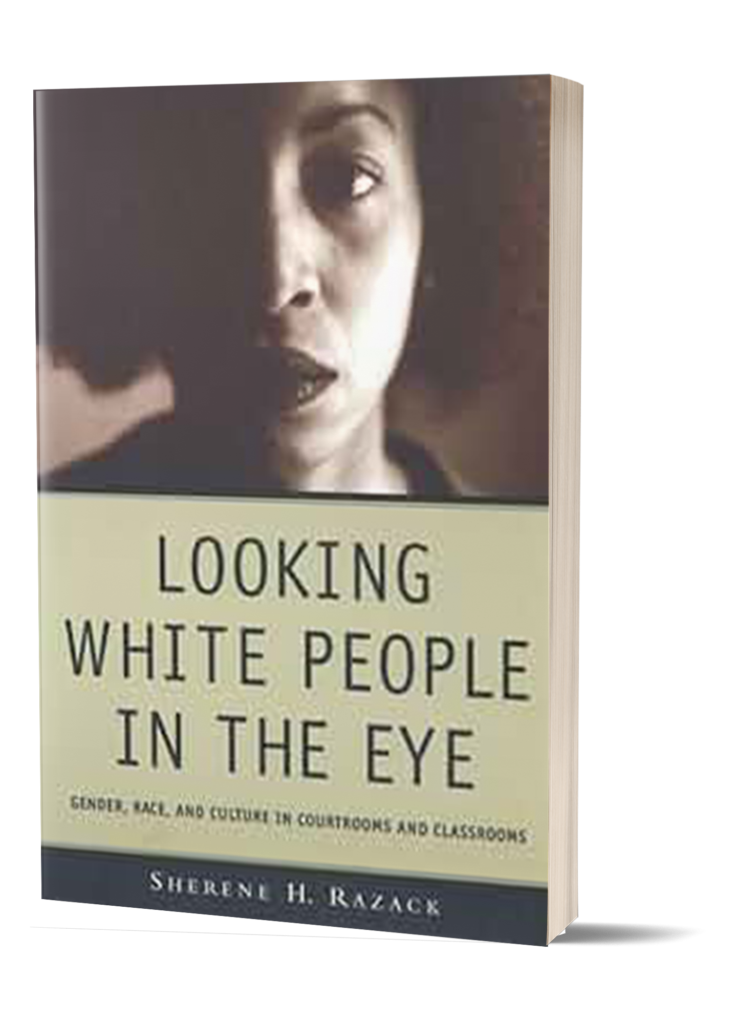- Home
- Publications
Looking White People in the Eye: Gender, Race, and Culture in Courtrooms and Classrooms
Published April 1998
Looking White People in the Eye: Gender, Race, and Culture in Courtrooms and Classrooms
In this book Sherene Razack explores what happens when whites look at non-whites, and in particular at non-white women. Most studies examining this encounter between dominant and subordinate groups focus on how it occurs in films, books, and popular culture. In contrast, Razack addresses how non-white women are viewed, and how they must respond, in classrooms and courtrooms. Examining the discussion of equity issues in the classroom and immigration and sexual violence cases in the courtroom, she argues that non-white women must often present themselves as culturally different instead of oppressed. Seen as victims of their own oppressive culture who must be pitied and rescued by white men and women, non-white women cannot then be seen as subjects. This book makes clear why we must be wary of educational and legal strategies that begin with saving ‘Other’ women. It offers powerful arguments for why it is important to examine who are the saviours and who are the saved, and what we must do to disrupt these historical relations of power.

Praise
“Exciting and sobering at the same time, Looking White People in the Eye shows that the challenge of cross-cultural communication, whether in the courtroom, classroom, or anywhere else, is much tougher than any of us like to think. This is true, in part, because, Razack shows, we must first admit our own complicity in the oppression of those whom we are trying to understand or help.”
Richard Delgado, Charles Inglis Thomson Professor of Law at the University of Colorado at Boulder and author of The Rodrigo Chronicles and Critical Race Theory: The Cutting Edge
“Looking White People in the Eye is a stunning and crucial book for feminist practice. Questioning received and well-intentioned notions of activism in classrooms, courtrooms and women’s groups, Sherene Razack insists that multiculturalist goals have to be theoretically informed by contextualized understandings of race and colonialism. The is an extremely important work, not just for academics and lawyers, but for all those interested in contemporary debates on the future of feminism in North America.”
Inderpal Grewal, Professor, Women Studies, San Francisco State University, and author of Home and Harem and co-editor of Scattered Hegemonies
“Sherene Razack’s gaze is deep and searching. Bringing the insights (but not the jargon) of postcolonial theory to her search for “a theory of difference that accounts for the violence in the lives of women and our complicity in it,” Razack asks us to look, and look again, at the practices in courtrooms and classrooms in which we are all enmeshed. She offers no easy answers, only the discipline of refusing to look away. This is a difficult, deep, and ultimately rewarding book.”
Angela P. Harris, Professor of Law, University of California – Berkeley School of Law (Boalt Hall) and author of ‘Race and Essentialism in Feminist Legal Theory,’ Stanford Law Review